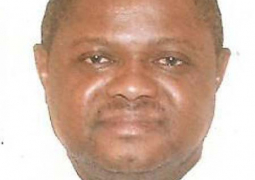The regional meeting, which brought participants from seven countries, is expected to last for three days.
The participating countries in the meeting include Morroco, Mauritania, Senegal, The Gambia, Guinea Bissau, Guinea and Cape Verde.
The objective of the CCLME project is to help these countries to bring together knowledge and capacity building to establish adequate mechanisms of good governance to manage sustainably the CCLME.
The project aims to reverse the trend of degradation of the ecosystem, caused by overfishing, habitat change in the quality of the water, by adopting a management based on the ecosystem approach.
In her speech on the occasion, FAO Representative Perpetua M. Katepa–Kalala said the current phase of the CCLME project was initiated on 1 April 2010 and is jointly funded by the Global Environment Fund (GEF), countries of the region and partners.
The project is being implemented by the FAO and UNEP, with two components - fisheries and the environment.
This project, she said, will benefit seven countries, namely Cape Verde, The Gambia, Guinea, Guinea Bissau, Mauritania, Morocco and Senegal.
According to her, CCLME projects of demonstration have also made significant progress to respond to the issues addressed in their framework.
She then went on to say that the fourth meeting of the steering committee will allow participants to review the achievements of the project and examine the status in the elaboration of the TDA, the main product of the project.
Speaking on behalf of the minister of fisheries, the deputy permanent secretary, Ministry of Fisheries, Fatou Sosseh Jallow, said the CCLME project is an important project of the FAO in its strategy of sustainable management of marine resources adopting the ecosystem approach, especially in developing countries.
She said the implementation of the project requires the combination of efforts of all partners and without that collaboration it would be difficult to meet the objectives of the project.
She further noted that the fisheries sector plays an important role in national economies, providing cheap animal protein, employment and foreign exchange earnings.
Madam Jallow stated further that a major concern of the Government of The Gambia in the fisheries sector is the conservation of the country’s fisheries stocks.
The deputy permanent secretary further expressed appreciation with the financial, human and material support of the UNDP, the FAO, and all other development partners for their assistance towards the conservation and protection of the country’s precious fisheries resources.
UNEP representative Abou Bamba said the strength and weakness of the project rest with the national inter-ministerial committees.
He said there are mixed judgments about the efficiency of the committees in some countries.
He also said he would like the Banjul meeting to provide the opportunity to fix the problems associated with the functioning of some of the committees.
In her official opening, the minister of the Environment, Park and Wildlife, Fatou Ndey-Gaye, said: “The participation of our country in this project reflects the interest of The Gambia in the management of its marine and coastal environment as the engine of environment.”
She also challenged the participants to critically review and discuss all activities undertaken since the last steering committee meeting in Spain.
She then used the opportunity to thank the FAO and UNEP, the GEF agency for the implementation of the project and encourage the CCLME team to continue working in good collaboration with national representatives.


